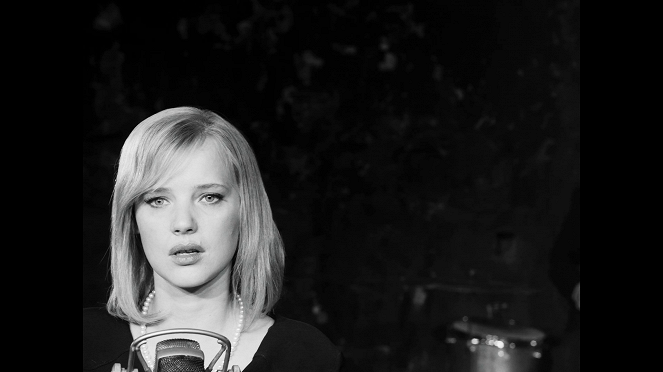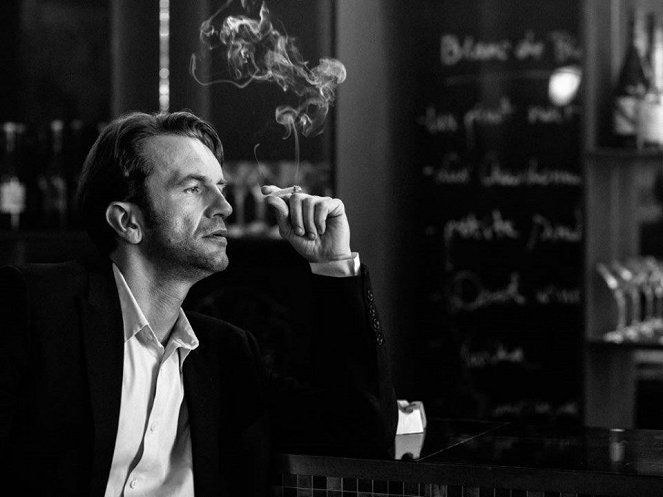Directed by:
Paweł PawlikowskiCinematography:
Łukasz ŻalCast:
Joanna Kulig, Tomasz Kot, Borys Szyc, Agata Kulesza, Cédric Kahn, Jeanne Balibar, Adam Woronowicz, Adam Ferency, Dražen Šivak, Slavko Sobin, Aloïse Sauvage (more)VOD (4)
Plots(1)
This sweeping, delirious romance begins in the Polish countryside, where Wiktor (Tomasz Kot), a musician on a state-sponsored mission to collect folk songs, discovers a captivating young singer named Zula (Joanna Kulig, in a performance for the ages). Over the next fifteen years, their turbulent relationship will play out in stolen moments between two worlds: the jazz clubs of decadent bohemian Paris, to which he defects, and the corrupt, repressive Communist Bloc, where she remains—universes bridged by their passion for music and for each other. Photographed in luscious monochrome and suffused with the melancholy of the simple folk song that provides a motif for the couple’s fateful affair, Paweł Pawlikowski’s timeless story—inspired by that of his own parents—is a heart-stoppingly grand vision of star-crossed love caught up in the tide of history. (Criterion)
(more)Videos (5)
Reviews (11)
I just don’t understand how a movie, which is the least comprehensible in terms of filmmaking I have seen in years, can get into the Oscar nominations for foreign language film category. Despite the fact that the Poles are now making so many much nicer movies. Of course, this film has also some qualities, that’s without saying. The idea of telling a story in the form of fragmentary scenes that are constantly torn to reconnect under the onslaught of Polish bagpipers is a virtuous and original idea. But I still had a hard time to not switch the TV off wanting to never see this film again after yet another scene with the bagpipers or the singing girl. In the end I finished the movie, I admit it’s original but… I don’t want to ever watch it again! If Cold War wins the Oscar for foreign language film, it will not win because of the movie itself, but because the Polish cinematography is currently the best one in Europe.
()
Absolute perfection. I'm not sure if there's anything else worth saying. I could find a lot of superlatives. From the very beginning, I enjoyed the visual aspects of the shots immensely, which is why I am grateful for the black-and-white treatment of the subject because in color all the impact would have been lost. In terms of music, I would be hard-pressed to search across world cinema for something so beautiful and coherent. The story of the fateful love of two people longing not only for each other, but also for freedom, in a time that did not exactly favor freedom and dreams, set in such tastefully elaborated realities, could not have turned out badly. Pawel Pawlikowski simply couldn't mess it up when he had such wonderful sets in reserve. The performances were also good, and the couple in love was perfectly suited to the 1950s and 1960s. And the ending? It couldn't have been wrapped up and filmed any better. I thus have no choice but to compliment the Poles on this cinematic treat. (100%)
()
This is a visually attractive melodrama about two people fated to love each other, set during the times of Stalinism in Poland. It is beautifully shot, but the screenplay does not shed enough light on the motivations of the two main characters - especially why they both keep saying how much they love each other, and yet every time they briefly live together they can hardly stand each other, constantly on and off, which means they, therefore, can not stay together. The "adversity of fate" seems like quite a convenient excuse there. It reminded me of the old Finnish drama Something in People, where there is a peculiar romance going on over a period of several years between the two main protagonists, who were also attracted to each other in a tragic way.
()
At the first fleeting glance, Cold War is the opposite of Ida. Though it could seem that Pawlikowski, following the success of his inconspicuous breakout film, is banking on festival success and awards, Cold War is surprising in how it differs from Ida in every respect, except for the basic foundation of a purely personal theme and the reflection of Polish historical and moral tragedy through that theme. Nevertheless, this level lies rather on another plane this time and the screen belongs predominantly to a destructive yet elemental romance. It cannot be denied that Pawlikowski has Cold War thought out in detail, thanks to which he does not slide into mannerisms or mere copying of Ida. The storytelling through music, linking the romantic and socio-political storylines with the central motif of music, and the conceptual use of the classic format and primarily the interplay of all of the above-mentioned elements in the interest of the work’s dramaturgy and its narration prove that Pawlikowski is a brilliant director who has matured in the course of his own creative renaissance. Of course, the question arises as to what he will come up with next and whether he will go in a new stylistic direction, or if he will continue to stand at the fore of festival nostalgia following the peak era of auteur filmmaking (at which Marhoul’s The Painted Bird also stands). However, it is also necessary to recognise that Cold War (like The Painted Bird) cannot be viewed in a limited way as a mere assemblage of allusions, as these represent the absolute last of the merits of this refined and emotionally pulsating film.
()


